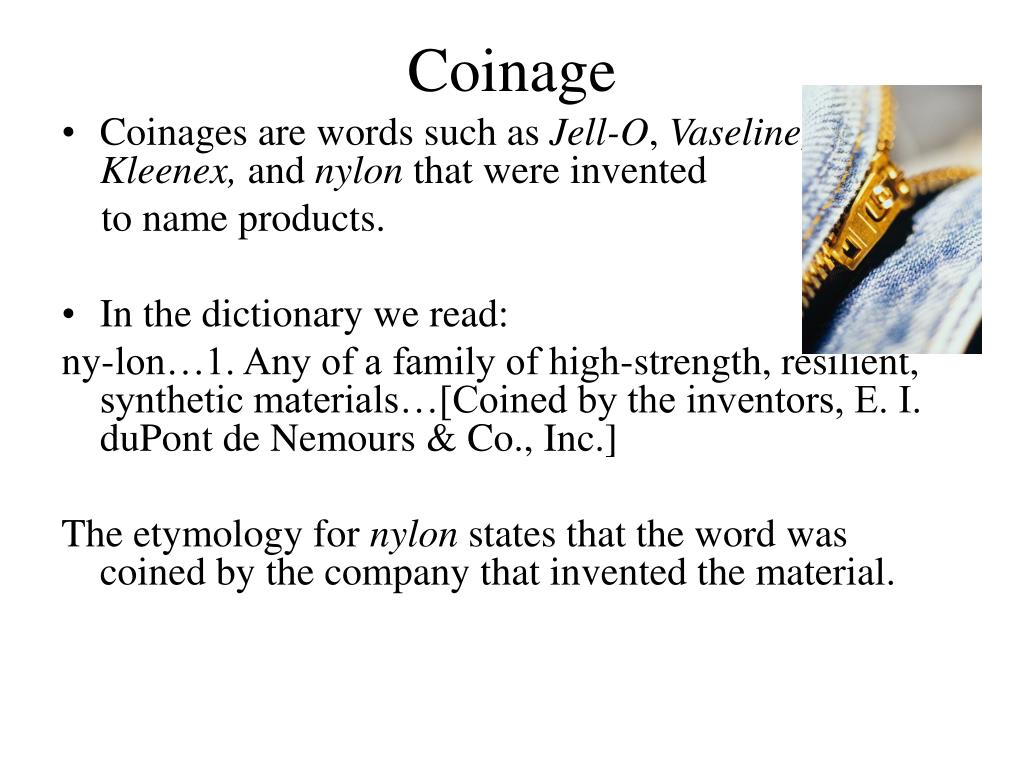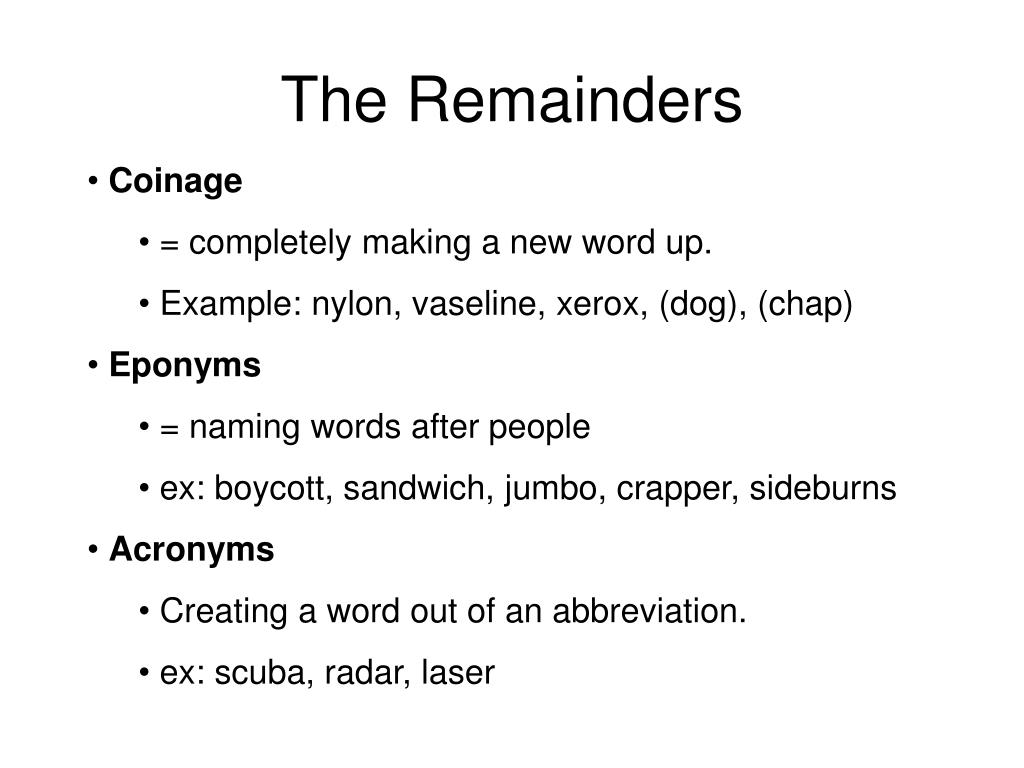
#Words from coinage series
The articles in this series define and exemplify the most common word formation processes, or the creation of new words, in English including derivation, back-formation, conversion, compounding, clipping, blending, abbreviations, acronyms, eponyms, coinages, nonce words, borrowing, and calquing. Image Credits Image by Clker-Free-Vector-Images from Pixabay Jaberwock Image This post is part of the series: Word Formation: Creating New Words in English long time no see – Chinese – hǎo jiǔ bu jiànĬalques are also referred to as root-for-root or word-for-word translations.flea market – French – marché aux puces.

For example, the following common English words are calqued from foreign languages: CalquingĬalquing is the word formation process in which a borrowed word or phrase is translated from one language to another. For example, the following common English words are borrowed from foreign languages:Įnglish loanwords are also referred to as borrowed. Loanwords are the word formation process in which a word from one language is borrowed directly into another language. For example, Lewis Carroll coined the word chortle, a blend of chuckle and snort, for the poem Jabberwocky in the book Through the Looking-Glass and What Alice Found There unlike most nonce words, however, chortle has gained acceptance as a legitimate blended word. Note that although most nonce words come in and out of use very quickly, some nonce words catch on and become everyday words. Power or influence like that of a magician bewitching or fascinating attraction or charm. witchcraftical – The practices of a witch or witches the exercise of supernatural power supposed to be possessed by persons in league with the devil or evil spirits.twi-thought – an indistinct or vague thought.touch-me-not-ishness – having a “touch-me-not” character stand-off-ish.Hence in allusive and extended uses, especially “incoherent or nonsensical expression.” So jabberwocky is invented language, meaningless language, nonsensical behavior also nonsensical, meaningless, topsy-turvy. jabberwock – The name of the fabulous monster in Lewis Carroll’s poem Jabberwocky.cotton-wool – to stuff or close (the ears) with cotton-wool.

Nonce words are created for the nonce, the term for the nonce meaning “for a single occasion.” For example, the follow list of words provides some nonce words with definitions as identified in the Oxford English Dictionary. The Jaberwocky is an example of nonce words Nonce words are new words formed through any number of word formation processes with the resulting word meeting a lexical need that is not expected to recur. For example, the following list of words provides some common coinages found in everyday English: As the eponymous protagonist of his play Coriolanus said, “So shall my lungs coine words till their decay.Coinage is the word formation process in which a new word is created either deliberately or accidentally without using the other word formation processes and often from seemingly nothing. Shakespeare, of course, famously coined many new words-most often by filling lexical gaps in English.

In some of its earliest recorded uses, the idiom often facetiously drew upon the concept that stamped coins were often counterfeited, in the sense that those who newly “coined” words and phrases claimed to have invented them, but actually drew them from other languages: “Young schollers not halfe well studied… will seeme to coigne fine wordes out of the Latin” (from The arte of English poesie, George Puttenham, 1589). The stamping sense of the English “coin” loosely remains in the idiom “coin a phrase,” which originated in the 16th century and suggests establishing a cliché or a widely recognized term. It predates “coin” by about 600 years and comes from the Latin moneta, “place for coining money, mint coined money, money, coinage.”

The Old English word mynet (which would become the word “mint”) was also used to mean “coin, coinage, money”-or, as the contemporary word is most commonly used, the act of stamping coins or the place where coins are minted. (And the word “quoin” is still used today to refer to keystones and cornerstones of buildings.) In Modern French, the word *coin* still means “corner, angle, nook.” The English word has been variously spelled coyne, coign, coigne or quoin. “Coin” came to English by way of Old French, which first adopted the legal tender sense of the word. It referred to the process of making coins from metal, and the act of striking coins. The first recorded use of the word coinage was in 1375. The term is derived from the Latin word cn meaning to create, produce, or make and agere meaning to do, to act. “Coin” comes from the Latin cuneus, or “corner.” When the word first arose in English in the early 14th century, it meant “wedge,” but it quickly adopted the sense of “thing stamped” or “a piece of money” because dies for stamping metal were wedge-shaped. Coinage is the process or activity of making coins.


 0 kommentar(er)
0 kommentar(er)
